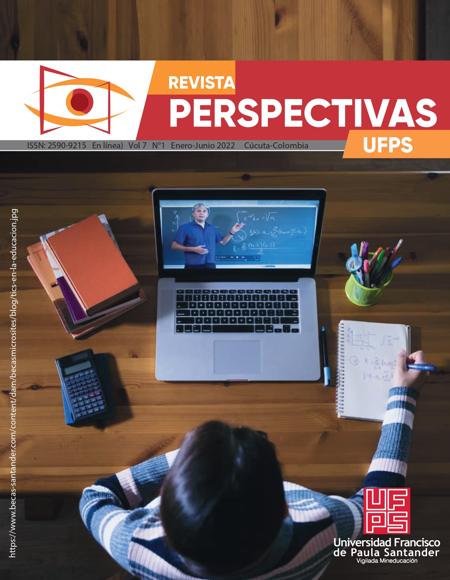Comprender la educación inclusiva al margen del ámbito clínico: una reflexión crítica para el caso colombiano
Comprender la educación inclusiva al margen del ámbito clínico: una reflexión crítica para el caso colombiano
Main Article Content
Inclusive education systems offer a higher quality education for children and youth, which is essential to change segregationist attitudes. However, in Colombia, inclusive education is largely perceived as something that affects only students with disabilities, a problem that puts other vulnerable groups at a disadvantage. Therefore, this article aims to develop a critical reflection on a new model of integration of inclusive education that includes the different dimensions of the school process, both the governmental regulatory guidelines and the processes of cooperation between local actors.
For this analysis a broad definition of the concept of "educational inclusion" was taken into account, whose characteristics are not limited to the provision of educational resources for people with disabilities or learning disabilities, orienting such definition to the importance of "otherness" as a fundamental practice in educational environments and taking into account that students' identities are influenced by contextual factors such as school climate, educators' perceptions, racism, power, privilege and oppressive structures
Downloads
Article Details
Beltrán, Y., Martínez, Y. & Vargas, A. (2015). El sistema educativo colombiano en el camino hacia la inclusión. Avances y retos. Educación y Educadores, 18(1), 62–75. https://doi.org/10.5294/edu.2015.18.1.4
Burner, T. (2018). Why is educational change so difficult and how can we make it more effective? Forskning Og Forandring, 1(1), 122. https://doi.org/10.23865/fof.v1.1081
DANE. (2019). Educación Formal (EDUC). https://www.dane.gov.co/files/investigaciones/boletines/educacion/bol_EDUC_19.pdf
Fernández, O. (2015). Levinas y la alteridad: cinco planos. Brocar. Cuadernos de Investigación Histórica, 39, 423–443. https://doi.org/10.18172/brocar.2902
Göransson, K. & Nilholm, C. (2014). Conceptual diversities and empirical shortcomings – a critical analysis of research on inclusive education. European Journal of Special Needs Education, 29(3), 265–280. https://doi.org/10.1080/08856257.2014.933545
Haigh, M. (2002). Internationalisation of the curriculum: Designing inclusive education for a small world. Journal of Geography in Higher Education, 26(1), 49–66. https://doi.org/10.1080/03098260120110368
Hansen, O. & Qvortrup, L. (2013). Inklusion i Danmark-hvilke konsekvenser har begrebsdefinitioner for den pædagogiske praksis. Paideia, 5, 8–19.
Haug, P. (2017). Understanding inclusive education: ideals and reality. Scandinavian Journal of Disability Research, 19(3), 206–217. https://doi.org/10.1080/15017419.2016.1224778
Hayes, A. & Bulat, J. (2017). Disabilities Inclusive Education Systems and Policies Guide for Low- and Middle-Income Countries. RTI Press, July.
Levinas, E. (1998). Discovering Existence with Husserl (R. Cohen & M. Smith (eds.)). Northwestern University Press.
Mitchell, D. (2008). Contextualizing Inclusive Education: Evaluating Old and New International Perspectives. Routledge. https://books.google.com.do/books?id=_rmfPwAACAAJ
Pivik, J., McComas, J. & Laflamme, M. (2002). Barriers and facilitators to inclusive education. Exceptional Children, 69(1), 97–107.
Raja, F. (2017). Journal of Education and Educational Development. Journal of Education and Educational Development, 4(1), 94–110.
Rhenals, J. (2021). Desigualdades Socioeducativas en el Contexto Colombiano: Perspectivas de Transformación Pedagógica en Tiempo de Crisis. Revista Tecnológica-Educativa Docentes 2.0, 10(1), 5–11. https://doi.org/10.37843/rted.v10i1.186
Skliar, C. (2019). Pedagogías de las diferencias: (Notas, fragmentos, incertidumbres). Noveduc.
Solórzano, M. (2013). Espacios accesibles en la escuela inclusiva. Revista Electrónica Educare, 17(1), 89–103. https://doi.org/10.15359/ree.17-1.5
Vila, E. (2019). Repensar la relación educativa desde la pedagogía de la alteridad. Ediciones Universidad de Salamanca, 173–192.
Beltrán, Y., Martínez, Y. & Vargas, A. (2015). El sistema educativo colombiano en el camino hacia la inclusión. Avances y retos. Educación y Educadores, 18(1), 62–75. https://doi.org/10.5294/edu.2015.18.1.4 DOI: https://doi.org/10.5294/edu.2015.18.1.4
Burner, T. (2018). Why is educational change so difficult and how can we make it more effective? Forskning Og Forandring, 1(1), 122. https://doi.org/10.23865/fof.v1.1081 DOI: https://doi.org/10.23865/fof.v1.1081
DANE. (2019). Educación Formal (EDUC). https://www.dane.gov.co/files/investigaciones/boletines/educacion/bol_EDUC_19.pdf
Fernández, O. (2015). Levinas y la alteridad: cinco planos. Brocar. Cuadernos de Investigación Histórica, 39, 423–443. https://doi.org/10.18172/brocar.2902 DOI: https://doi.org/10.18172/brocar.2902
Göransson, K. & Nilholm, C. (2014). Conceptual diversities and empirical shortcomings – a critical analysis of research on inclusive education. European Journal of Special Needs Education, 29(3), 265–280. https://doi.org/10.1080/08856257.2014.933545 DOI: https://doi.org/10.1080/08856257.2014.933545
Haigh, M. (2002). Internationalisation of the curriculum: Designing inclusive education for a small world. Journal of Geography in Higher Education, 26(1), 49–66. https://doi.org/10.1080/03098260120110368 DOI: https://doi.org/10.1080/03098260120110368
Hansen, O. & Qvortrup, L. (2013). Inklusion i Danmark-hvilke konsekvenser har begrebsdefinitioner for den pædagogiske praksis. Paideia, 5, 8–19.
Haug, P. (2017). Understanding inclusive education: ideals and reality. Scandinavian Journal of Disability Research, 19(3), 206–217. https://doi.org/10.1080/15017419.2016.1224778 DOI: https://doi.org/10.1080/15017419.2016.1224778
Hayes, A. & Bulat, J. (2017). Disabilities Inclusive Education Systems and Policies Guide for Low- and Middle-Income Countries. RTI Press, July. DOI: https://doi.org/10.3768/rtipress.2017.op.0043.1707
Levinas, E. (1998). Discovering Existence with Husserl (R. Cohen & M. Smith (eds.)). Northwestern University Press.
Mitchell, D. (2008). Contextualizing Inclusive Education: Evaluating Old and New International Perspectives. Routledge. https://books.google.com.do/books?id=_rmfPwAACAAJ
Pivik, J., McComas, J. & Laflamme, M. (2002). Barriers and facilitators to inclusive education. Exceptional Children, 69(1), 97–107. DOI: https://doi.org/10.1177/001440290206900107
Raja, F. (2017). Journal of Education and Educational Development. Journal of Education and Educational Development, 4(1), 94–110. DOI: https://doi.org/10.22555/joeed.v4i1.1001
Rhenals, J. (2021). Desigualdades Socioeducativas en el Contexto Colombiano: Perspectivas de Transformación Pedagógica en Tiempo de Crisis. Revista Tecnológica-Educativa Docentes 2.0, 10(1), 5–11. https://doi.org/10.37843/rted.v10i1.186 DOI: https://doi.org/10.37843/rted.v10i1.186
Skliar, C. (2019). Pedagogías de las diferencias: (Notas, fragmentos, incertidumbres). Noveduc.
Solórzano, M. (2013). Espacios accesibles en la escuela inclusiva. Revista Electrónica Educare, 17(1), 89–103. https://doi.org/10.15359/ree.17-1.5 DOI: https://doi.org/10.15359/ree.17-1.5
Vila, E. (2019). Repensar la relación educativa desde la pedagogía de la alteridad. Ediciones Universidad de Salamanca, 173–192.
Vlachou, A. (2004). Education and inclusive policy-making: Implications for research and practice. International Journal of Inclusive Education, 8(1), 3–21. https://doi.org/10.1080/1360311032000139449. DOI: https://doi.org/10.1080/1360311032000139449







